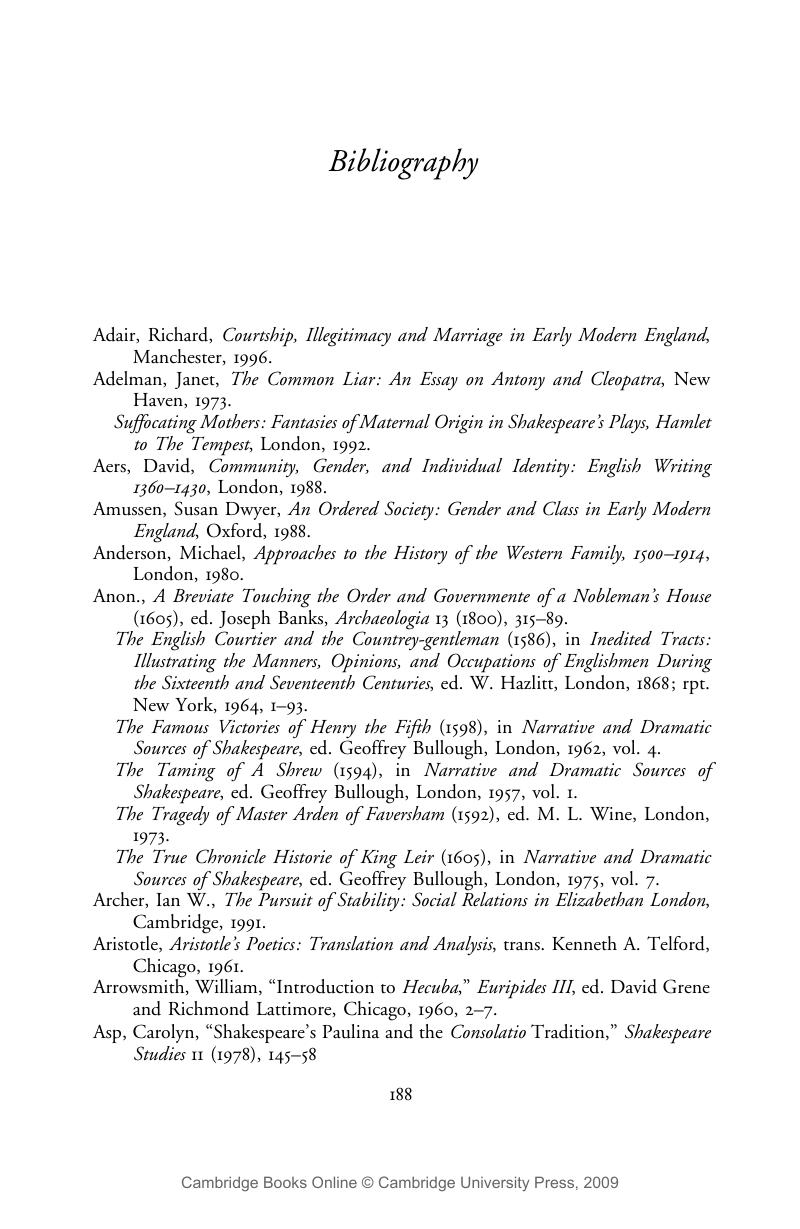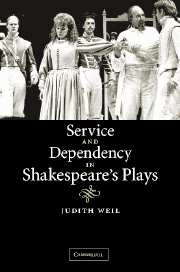Book contents
Bibliography
Published online by Cambridge University Press: 22 September 2009
Summary

Information
- Type
- Chapter
- Information
- Service and Dependency in Shakespeare's Plays , pp. 188 - 205Publisher: Cambridge University PressPrint publication year: 2005
